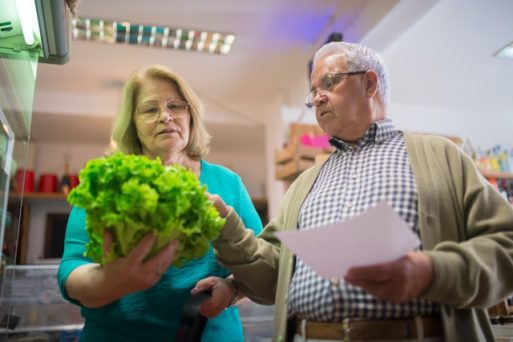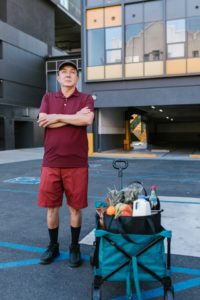
Many older Americans don’t have enough income for basic necessities.
With U.S. housing prices soaring and annual inflation above 9% — not to mention the widespread economic fallout of a multi-year global pandemic — many individuals are struggling to make ends meet. But as the Elder Index reveals, one group in the United States is facing unique challenges: older adults. Fortunately, a new collaboration of organizations is banding together in an effort to ensure they don’t get left behind: the Equity in Aging Collaborative.
Composed of 25 local and national organizations seeking to support all Americans — especially diverse populations — the Equity in Aging Collaborative focuses on promoting the Elder Index, a tool developed by the Gerontology Institute at the University of Massachusetts, Boston that measures the income older adults require to meet their basic needs. Geography, housing type, healthcare, transportation, food, household size, and other essential measures are all factored into the equation. “The Collaborative will advocate for the adoption of the Elder Index and for improving the standard-of-living measures used to determine eligibility for programs such as Medicare, Medicaid, taxes, food assistance, and housing support,” its website states.
Elder Index Can Reveal True Cost of Aging

Some forgo food to pay for healthcare.
Ramsey Alwin, president and CEO of the National Council on Aging, which helped to organize the coalition, told Kaiser Health News that it aims to reveal “the true cost of aging in America.” The Elder Index calculates that older adults paying for a minimum cost of living need many thousands of dollars more annually than suggested by federal poverty thresholds.
Regardless, older adults must meet federally-recognized poverty levels to receive basic assistance such as food stamps and Medicaid. “There’s a myth that Social Security and Medicare miraculously take care of all people’s needs in older age,” Alwin told KHN. “The reality is they don’t, and far too many people are one crisis away from economic insecurity.”
Fran Seeley, a retired, 81-year-old teacher, told KHN that she struggles to live on the annual $19,300 she cobbles together from her retirement, Social Security and reverse home mortgage.“The biggest worry I have is not being able to afford living in my home or becoming ill,” she said. “I know that medical expenses could wipe me out in no time financially.”
Of course, Seeley has valid reason to be concerned. A recent Gallup poll found that one in three adults over age 50 have given up food or other basic necessities to pay for healthcare, with Black adults more likely to do so than others. Some older adults are choosing to forgo health treatments entirely due to the cost.
These are just some of the issues that the Equity in Aging Collaborative hopes to address by encouraging policy changes based on the Elder Index. “It’s time for Congress to ensure that every American has the resources to age well — regardless of their gender, color, sexuality, income, or zip code,” Alwin said in a recent press release. “Older Americans deserve nothing less.”

 “Elder Index” Measures Widespread Poverty for Older Americans
“Elder Index” Measures Widespread Poverty for Older Americans


 Terminal Sedation at the End of Life
Terminal Sedation at the End of Life

 How Dare You Die Now!
How Dare You Die Now!














